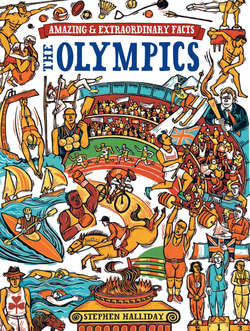Читать книгу The Olympics - Stephen Halliday - Страница 11
На сайте Литреса книга снята с продажи.
The Baron and the Doctor
‘The vast Gothic chapel’
ОглавлениеPierre de Coubertin visited many English public schools but, influenced no doubt by his early reading of Tom Brown’s Schooldays, he was most impressed by Rugby School. Following his visit he wrote a book called L’Education en Angleterre in which he wrote that ‘organised sport can create moral and social strength’. The hero of the book is Dr Thomas Arnold of Rugby. De Coubertin believed that Arnold, headmaster of Rugby from 1828 to 1842, had promoted the cult of sport within English public schools which underpinned the creation of the British Empire. He visited Rugby on several occasions and wrote that Arnold ‘would not have been an Englishman had he not loved sport’ and that he had given ‘the precise formula for the role of athletics in education. The cause was swiftly won. Playing fields sprang up all over England.’ Thanks to Arnold, de Coubertin believed, sport had shaped England’s ascendancy. He recorded his experience at Arnold’s tomb in Rugby School chapel, writing: ‘How often, at dusk, in the vast Gothic chapel at Rugby, with my eyes fixed on the funeral slab inscribed simply with the name of Thomas Arnold, have I thought to myself that here was the cornerstone of the British Empire?’ In contrast, he wrote, in France ‘physical inertia was until recently considered an indispensable assistant to the perfecting of intellectual powers.’
Dr Thomas Arnold
But de Coubertin was mistaken about Dr Thomas Arnold’s attitude towards sports. Tom Brown’s Schooldays which had influenced him so much gives an account of life at Rugby during the last years of Arnold’s headship when Hughes was a pupil at the school. It contains a fine account of sporting activities, notably a cricket match, and does give the impression that sport was a major feature of the school’s life at the time. Thomas Arnold, however, had little interest in sport. He stated that he wanted to create pupils who were Christians, gentlemen and scholars, especially classical scholars, in that order of importance.
